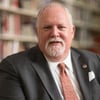The roots of violence and injustice are complex and mired in societal and political specifics around the globe.
Facing History and Ourselves teaches that rigorous study of history can help us make choices for a better future. Each history has its own lessons, but all of them give us a platform from which to ask fundamental questions, in communities and in schools: how did identity impact the choices people made in the past? How do we, today, engage with each other across difference?
Our differences may be place of birth, ethnicity, race, religion, gender, history, economics, or life experience; regardless, we have found that creating space for respectful conversations can bring both adults and youth to a transformative understanding: Conversation itself is a form of civic participation required by democracy. Or to put it another way: By talking openly with each other across our differences, we can take a step in the direction of stopping hatred before it happens.
But no one is particularly good at conversations about difference. For instance, recent polls show that Americans are worse than ever at having a conversation about race with someone of another race. Among the lessons Facing History has learned is that we must take history off its dusty shelf and from there build the conversations we wish to have in a vibrant society.

On Wednesday, December 9 at 6:00 p.m. EST, Facing History will bring Bryan Stevenson, human rights activist and founder of the Equal Justice Initiative, to Boston for an event at Emerson College titled “Talking About Injustice: A Community Conversation.” I believe that Stevenson’s message is so important for our entire community that we will be live streaming the event. I invite everyone to log in and participate.
“We have a hard time talking about race,” Stevenson says. “We don't like to talk about our history.” He describes the period from the end of Reconstruction after the American Civil War until World War II as defined by terror for African Americans. “People had to worry about being lynched [and] bombed. The threat of terror shaped their lives…We have to own up to the things we have done. There is a kind of freedom on the other side of that. Doing this is uncomfortable. We need to have the courage to be uncomfortable.”
Can talking lead to real change? It can. Recent impact studies found that 92% of Facing History teachers reported their students conversed respectfully about difficult topics; 78% said their students gained empathy for people different from themselves.
The future depends on such transformations. This winter and spring, we’ll hold three public forums in Boston, where Facing History is headquartered, on race and on religious intolerance: (1) for educators to help students discuss race; (2) on membership in American democracy and how to challenge racial and religious stereotypes; and (3) on creating inclusive environments for newcomers, as today’s global migration changes America and the world.
As history shows us, we really need to talk.

